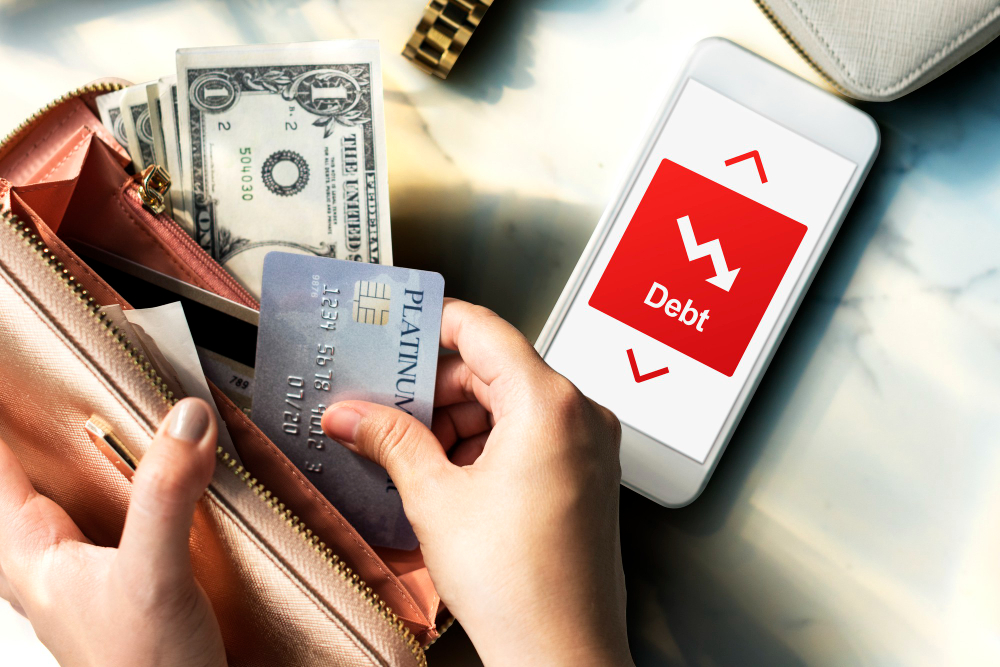How to Pay Off Debt and Build Credit

Debt can be a major burden, both financially and emotionally. It can make it difficult to save money, buy a home, or even get a job. But there are steps you can take to pay off your debt and improve your credit score.
In this article, we will discuss how to pay off debt and build credit. We will cover topics such as:
- How to create a budget
- How to make more money
- How to negotiate with creditors
- How to choose the right debt repayment method
- How to build good credit habits
How to Create a Budget
The first step to paying off debt is to create a budget. This will help you track your income and expenses so you can see where your money is going. Once you know where your money is going, you can start to make changes to free up more money to pay off your debt. There are many different ways to create a budget. You can use a spreadsheet, a budgeting app, or even just a pen and paper. The most important thing is to find a method that works for you and stick to it.
How to Make More Money
If you’re struggling to pay off your debt, you may need to make more money. There are a few different ways to do this. You could get a part-time job, start a side hustle, or ask for a raise at work. If you’re not sure how to make more money, there are resources available to help you. You can talk to a financial advisor, or you can search online for tips on how to make extra money.
How to Negotiate with Creditors
If you’re having trouble making your debt payments, you may be able to negotiate with your creditors. This means talking to them about lowering your interest rates or monthly payments. Before you negotiate with your creditors, it’s important to do your research. This means knowing your rights as a debtor and understanding the terms of your loan. You should also be prepared to offer something in return for a lower interest rate or monthly payment. This could be something like making a lump-sum payment, agreeing to a longer repayment period, or signing up for a debt management plan.
How to Choose the Right Debt Repayment Method
There are many different debt repayment methods available. The best method for you will depend on your individual circumstances. Some of the most popular methods include:
The debt snowball method:
This method involves paying off your debts in order from smallest to largest, regardless of the interest rate. This can help you build momentum and stay motivated.
The debt avalanche method:
This method involves paying off your debts in order from highest interest rate to lowest, regardless of the size of the debt. This can save you money in the long run, but it may be more difficult to stay motivated.
The debt consolidation loan:
This is a loan that you use to pay off all of your other debts. This can simplify your finances and make it easier to make one monthly payment. However, it’s important to make sure that you can afford the monthly payments on the debt consolidation loan.
How to Build Good Credit Habits
Once you’ve paid off your debt, it’s important to build good credit habits so you don’t end up in debt again. Here are a few tips:
Pay your bills on time, every time.
Keep your credit utilization low. This means using no more than 30% of your available credit.
Don’t apply for too much credit. Too many hard inquiries on your credit report can hurt your score.
Conclusion
Paying off debt and building credit can be a challenge, but it’s definitely possible. By following the tips in this article, you can get on the road to financial freedom.
FAQs
Q: How long will it take me to pay off my debt?
A: The time it takes to pay off your debt will depend on the amount of debt you have, your income, and the repayment method you choose. If you use the debt snowball method, you may be able to pay off your debt in a few years. If you use the debt avalanche method, it may take a little longer.
Q: What are the benefits of paying off debt?
A: There are many benefits to paying off debt. You’ll have more money in your pocket each month, you’ll reduce your stress levels, and you’ll improve your credit score. A good credit score can help you qualify for loans, get a lower interest rate on your mortgage, and rent an apartment.
Read More : Exploring the Best of England’s Countryside











